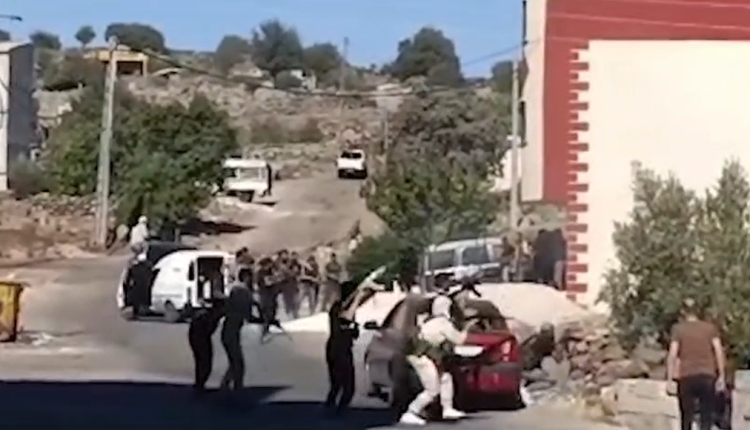In March, in excess of 1,300 Alawite civilians were killed by Syrian forces, chiefly along the northwest coast. In July, several hundred more Druze civilians were executed by security forces in the southwestern Suwayda Governorate. Neither crackdown really ended, and killings are still reported regularly.
The result is growing disquiet among ethnic and religious minorities, and opposition to the ruling Islamist Hayat Tahrir al-Sham’s (HTS) calls for a strong central government with heavy control over the entire country.
But the calls for decentralization and the nascent insurgencies resisting the overt massacres are being branded as insurgencies by Assad-era remnant forces. The Druze seeking limited autonomy within Suwayda, just a few months after large scale executions, are similarly being presented as Israel-fueled unrest.

Suwayda clashes 7/13/25 | Image from SOHR
Israel is doing nothing to disabuse that notion, as the Netanyahu government, which has been actively invading Syria since the HTS came to power, has recently been trying to brand those territory grabs as about “protecting the Druze,” even if much of the territory occupied is nowhere near Suwayda.
On top of the Alawites on the coast and the Druze in Suwayda, the Kurds have been actively pushing for decentralization in the northeast, citing the HTS attempts to cut them out of what they promised would be a diverse, representative government.
There the HTS lacks a scapegoat for pushing the Kurds to this position, though Turkey’s general opposition to Kurds in general has allowed them to frame military threats against the Kurdish region as primarily coming from Turkey, not themselves.
In reality there have been reports that the HTS was preparing a large scale military offensive against the Kurds for months, with expectations such an offensive would happen in October. It’s yet to begin, but the Kurds historic allies, the US, seem to be leaning heavily toward supporting the HTS in centralization at all cost, chiding the Kurds for calls for autonomy and insisting, despite America’s own government system, that “federalism doesn’t work.”
While global powers remain generally supportive of the “one army, one state” standard for Syria, the shoddy human rights record in the brief time the HTS has been in power will inevitably raise concerns, at least domestically, that centralizing all the power in their hands is profoundly unwise, and them actually imposing full control over the entire nation remains a work in progress that’s going to require substantial international support if they want to bring every faction to heel.


